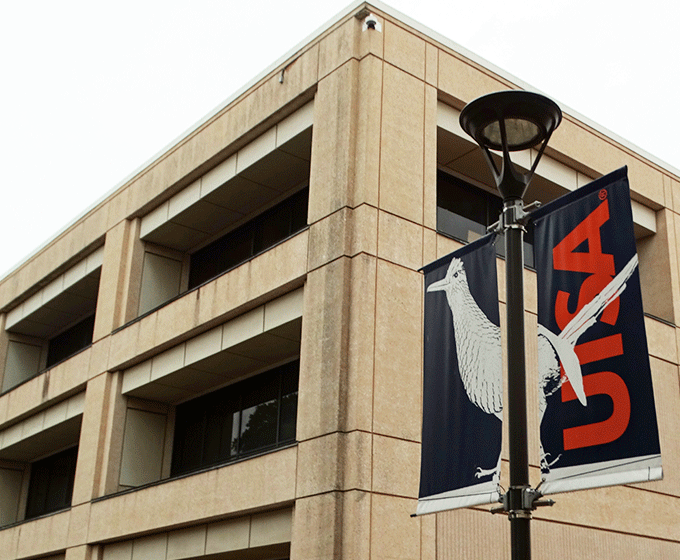
MAY 20, 2021 — Fifty-six faculty members from across UTSA have participated in the Association of College and University Educators (ACUE) Course in Effective Teaching Practices. These faculty have strategically optimized their time and course design process to offer the best learning experiences for their students.
In January 2020, UTSA Academic Affairs announced the opportunity for up to 32 faculty members to participate in the ACUE Effective Teaching Practices course that semester with costs covered by UT System. Based on high interest, a second cohort was created.
Though the course was initially scheduled to begin in late March, UTSA facilitators worked with ACUE to postpone the start in light of the unprecedented coronavirus pandemic.
The course was also expanded to include an option about effective online teaching practices.
"One of the goals of Academic Innovation is to promote quality and inclusive teaching strategies for faculty and student success," said Melissa Vito, vice provost for academic innovation at UTSA. “We enthusiastically supported this ACUE pilot and have already seen its value in advancing faculty excellence."
The first ACUE cohort, facilitated by Claudia Arcolin, director of digital learning, and Shelley Howell, interim associate vice provost of academic innovation, began the Course in Effective Teaching Practices in July 2020. The second cohort, facilitated by Rey Villanueva, teaching and learning consultant and lecturer I in the Department of Anthropology, and Edwin Barea-Rodriguez, professor and associate dean for student success for the College of Sciences, began the course a few months later in September.
The course contains 25 online modules and regular video conferences where participating faculty and UTSA facilitators share insights, ask questions and support each other in their learning. Both ACUE cohorts are scheduled to conclude in late April and June respectively.
"I was very excited that the UT System and UTSA administration were so supportive of this initiative and that we were able to offer two cohorts for our faculty, even during a pandemic,” Howell said. “This course covers all the basics needed for effective teaching at the college level, plus dives into meeting the essential needs for universal accessibility and inclusion for all students."
Assistant professor of engineering Ethan C. Ahn chose to participate in the course to improve his teaching practice and methodology in an online setting in order to best enable effective student learning.
“The ACUE course was a mind-blowing experience for me in that I was able to correct some of my misconceptions and implicit biases while learning about new teaching skills and practices that are applicable to both online and offline settings,” Ahn said. “This helped me to better communicate with students, grade their assignments fairly, and make students stay focused and learn more effectively.”
Ryan McPherson, lecturer III in the Department of Communication, felt the discussions between course participants were invaluable in helping him enhance his course design.
“The weekly time investments in the ACUE course module challenges, prompts, and cohort discussions have significantly improved my student experience design, feedback, and relationships,” McPherson said. “I expected fresh perspectives, but one of the most exciting outcomes was the list of course improvement ideas that will fuel course innovations for years to come.”
The course facilitators expressed equal enthusiasm with the experience.
“The commitment of these faculty is extraordinary,” Arcolin said. “Despite the time commitment, being part of this community helps to overcome stress and encourage the sharing of ideas for the course and tips to engage students. It's a way to motivate and support each other. I am impressed by the quality of resources shared, the intellectual generosity, and the passion and care for our students, who are always the heart of the conversation.”
ACUE partners with hundreds of institutions to support student success. The Effective Teaching Practices course curriculum and resources are evidence-based and cover the best practices in the teaching and learning field.
Faculty who complete the course earn the American Council on Education (ACE)-certified Certificate in Effective Teaching Practices and will become a UTSA ACUE Teaching Fellow.
UTSA Today is produced by University Communications and Marketing, the official news source of The University of Texas at San Antonio. Send your feedback to news@utsa.edu. Keep up-to-date on UTSA news by visiting UTSA Today. Connect with UTSA online at Facebook, Twitter, Youtube and Instagram.
Move In To COLFA is strongly recommended for new students in COLFA. It gives you the chance to learn about the Student Success Center, campus resources and meet new friends!
Academic Classroom: Lecture Hall (MH 2.01.10,) McKinney Humanities BldgWe invite you to join us for Birds Up! Downtown, an exciting welcome back event designed to connect students with the different departments at the Downtown Campus. Students will have the opportunity to learn about some of the departments on campus, gain access to different resources, and collect some giveaways!
Bill Miller PlazaCome and celebrate this year's homecoming at the Downtown Campus with food, games, giveaways, music, and more. We look forward to seeing your Roadrunner Spirit!
Bill Miller PlazaThe University of Texas at San Antonio is dedicated to the advancement of knowledge through research and discovery, teaching and learning, community engagement and public service. As an institution of access and excellence, UTSA embraces multicultural traditions and serves as a center for intellectual and creative resources as well as a catalyst for socioeconomic development and the commercialization of intellectual property - for Texas, the nation and the world.
To be a premier public research university, providing access to educational excellence and preparing citizen leaders for the global environment.
We encourage an environment of dialogue and discovery, where integrity, excellence, respect, collaboration and innovation are fostered.